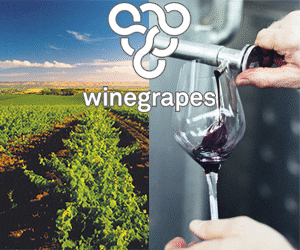
China has imposed provisional anti-subsidy tariffs of 6.3 to 6.4 percent on Australian wine imported into the country.
Australian wine now faces total temporary duties of up to 218.5 percent.
The Chinese Ministry of Commerce (MOFCOM) says the Australian subsidies have hurt the local wine industry.
“There is a causal relationship between the subsidies and the substantial damage to the local industry,” the ministry says.
This follows the anti-dumping tariffs of 107.1 to 212.1 percent China recently introduced on Australian wine imports.
This effectively wipes out Australia’s $1.2 billion wine exports to China.
Treasury Wine Estates has said it will maintain a small presence in China.
“In practical terms, it doesn’t mean anything because we’ve already been effectively shut out of the market,” Australian Grape & Wine chief executive Tony Battaglene told The Advertiser.
“It’s just a kick while you’re down.”
Australian Grape & Wine is “deeply disappointed” by the decision.
“The allegation that Australian grapegrowers and winemakers receive trade-distorting subsidies demonstrates a fundamental misunderstanding of our sector,” says Tony Battaglene, chief executive of Australian Grape & Wine.
“The OECD ranks Australia as the second-least subsidised agriculture sector in the world.
“Australian grapegrowers and winemakers have been competitive in China because of their efficiency and the quality of the product.
“We don’t understand how Australia is being accused of benefitting from subsidies, while other wine producing nations enjoy significant government subsidies and continue to export to China”.
Battaglene says that, each year, the OECD’s Producer Support Estimate (PSE) reports on the levels of trade-distorting subsidies that national governments provide to their agriculture sector.
“In 2020, the OECD estimated that farmers received around two percent of receipts as a result of government measures, second only to New Zealand. By contrast, according to the report, Chinese farmers receive a PSE of around 13.3 percent and EU countries provide around 19 percent on average,” he says.
“Clearly, Australian grapegrowers and winemakers refute these findings.
“However, we will continue to engage in MOFCOM’s process as cooperatively as possible.
“The facts speak for themselves. We are not dumping wine in China, and as the OECD points out, our producers are not subsidised in any way that would harm the Chinese wine sector.
“Chinese consumers buy Australian wines because they enjoy them, it’s that simple.
“It’s a pity they won’t have the opportunity to do this in the near future.
“My message to all Australians right now is this: buy local.”
WBM newsletter The Week That Was will publish an update on the situation on Friday.
Photo by Clay Banks on Unsplash














Recent Comments